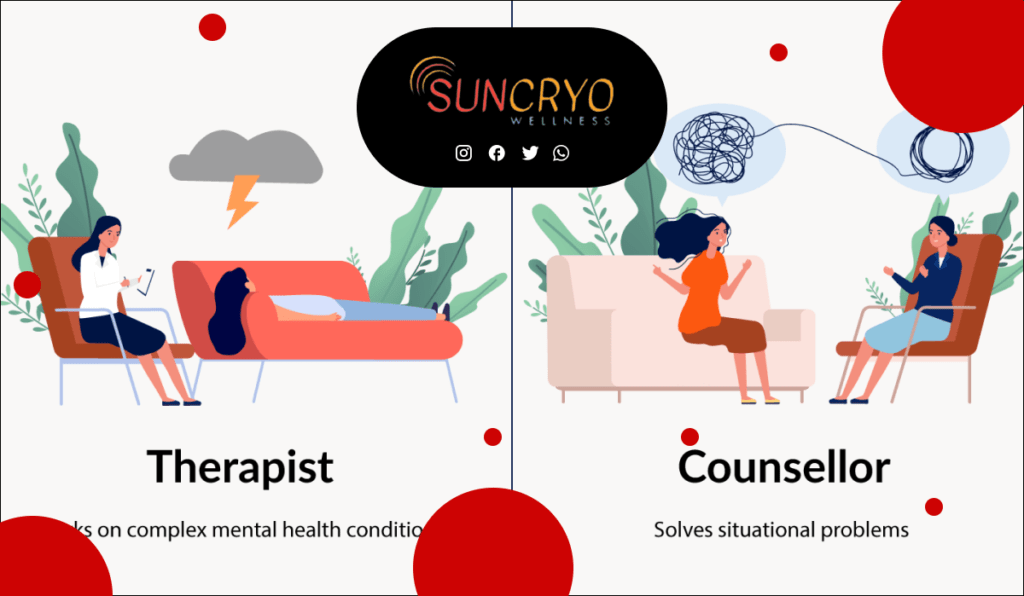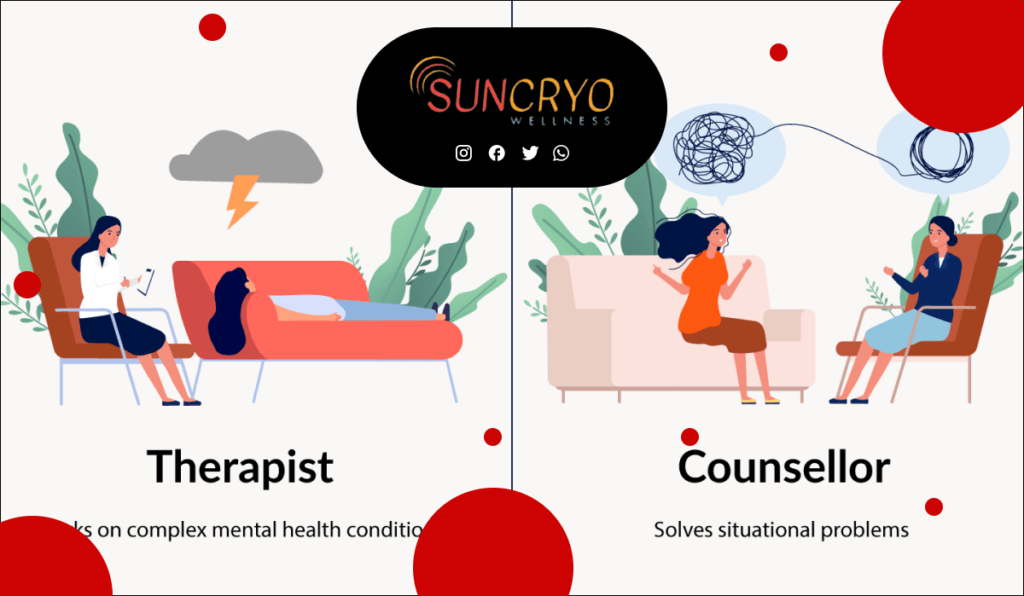Counselor vs. Therapist

In the realm of mental health and emotional well-being, seeking professional help is a courageous step toward healing and growth. When navigating the path to mental wellness, you may encounter terms like “counselor” and “therapist,” but understanding the differences between the two can be crucial in finding the right support for your specific needs. In this comprehensive guide, we’ll explore the distinctions between counselors and therapists, highlighting their qualifications, training, areas of expertise, and how to choose the most suitable option for your unique situation. https://georgetownsuncryo.com/
1. The Role of a Counselor
Counselors, also known as mental health counselors or professional counselors, are licensed professionals who specialize in providing guidance and support to individuals facing various emotional and psychological challenges. Their focus is on helping clients cope with stress, anxiety, relationship issues, grief, and more. Counselors use talk therapy and evidence-based techniques to assist clients in developing coping strategies and improving their overall emotional well-being.
2. The Role of a Therapist
On the other hand, therapists, also referred to as psychotherapists or mental health therapists, have a broader scope of practice compared to counselors. Therapists are trained to address a wide range of mental health concerns and often work with individuals, couples, families, or groups. They delve into the underlying causes of psychological distress and use various therapeutic modalities to promote healing and personal growth.
3. Qualifications and Training
To become a licensed counselor or therapist, extensive education and training are required. Typically, both professions require a master’s degree in counseling, psychology, or a related field. During their academic journey, aspiring counselors and therapists gain hands-on experience through internships and supervised clinical work. After completing their formal education, they must pass rigorous licensing exams to practice independently.
4. Areas of Expertise
Counselors and therapists may specialize in various areas, depending on their interests and passions. Some common specialties include:
- Marriage and Family Counseling: Focused on relationship dynamics and improving communication within partnerships and families.
- Addiction Counseling: Dealing with substance abuse and behavioral addictions, helping individuals on their journey to recovery.
- Trauma Counseling: Addressing the emotional aftermath of traumatic experiences and guiding clients towards healing.
- Child and Adolescent Counseling: Working with children and teens to navigate challenges related to school, family, and personal growth.
5. Choosing the Right Professional for You
Selecting the right mental health professional is crucial for effective therapy. Here are some factors to consider when making your decision:
a. Specific Needs and Goals
Identify the primary concerns you want to address in therapy. If you’re dealing with relationship issues, a marriage and family counselor might be the best fit. For individual struggles, a therapist specializing in your area of concern can provide tailored support.
b. Credentials and Licensing
Verify the counselor’s or therapist’s credentials and ensure they are licensed to practice independently. You can usually find this information on their website or by contacting their licensing board.
c. Therapeutic Approach
Research the therapeutic approaches used by different professionals. Some may focus on cognitive-behavioral therapy, while others may emphasize psychodynamic or humanistic approaches. Choose a therapist whose methods align with your preferences and comfort level.
d. Compatibility
Establishing a strong rapport with your counselor or therapist is essential for successful therapy. Consider scheduling an initial consultation to determine if you feel comfortable and supported in their presence.
Conclusion
In summary, both counselors and therapists play vital roles in supporting individuals on their journey to mental wellness. Counselors focus on providing guidance and coping strategies, while therapists delve into deeper emotional issues using various therapeutic modalities. When seeking professional help, take the time to assess your specific needs, research credentials, and therapeutic approaches, and find a mental health professional with whom you feel a genuine connection. Remember, the path to healing is unique to each individual, and finding the right support can make all the difference in your mental and emotional well-being. https://www.psychologytoday.com
